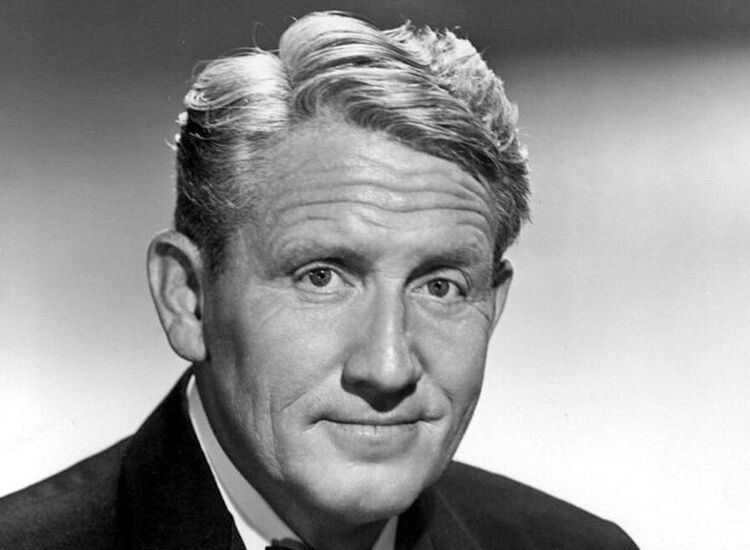Broadcast journalist Colm Flynn, seen here interviewing fashion blogger Erika Fox, is among the 2021 Irish Echo Top 40 Under 40 that is set for Friday evening at 6 p.m., Eastern. Register here to watch the virtual presentation and you will be included in the draw to win two return flights to Ireland courtesy of Aer Lingus. We reproduce below a 2017 Echo interview with Flynn.
By Peter McDermott
You’d hardly call Colm Flynn a cautious kind of guy. After all, he once dangled his feet over a high-rise Manhattan ledge in pursuit of the story.
“I nearly lost my job because of that one,” recalled the Irish broadcast journalist.
But when his bosses at RTÉ suggested he do a documentary in Belarus, “Europe’s last dictatorship,” he wasn’t so keen. They tiptoed gingerly around the proposal for months; but for him it was personal. It involved Banni, someone he considered in his heart to be his brother, but who was years ago taken back to Belarus after spending 18 months in Ennis, Co. Clare.
Flynn eventually agreed to do the documentary to mark the 30th anniversary of the Chernobyl disaster and as part of that visited the now adult Banni in a state institution.
Those stories epitomize his range. The lighthearted Flynn is most often in evidence on Ireland’s top-rated daytime show, “Today,” while the more serious can be seen on “Nationwide,” RTÉ’s long-running news and arts program that has an emphasis on the regions.
With the “Today” show off for the summer, Flynn is taking a time-out in New York City, which doesn’t necessarily mean time off. He’s been working non-stop for different outlets as well as making new contacts in New York and catching up with old ones. The BBC World Service is one of the outlets. On a broadcast last week he interviewed a sculptor from the New York Academy of Art who helps forensic specialists identify unclaimed bodies.
The previous week, his BBC report profiled an actor who, despite being afflicted with Tourette syndrome, is pursuing his dream of working on the Broadway stage.
In late July, he walked the 80 miles of the Camino de Santiago in Portugal and Spain filming a full-program documentary for the Alabama-based Catholic network EWTN.
And he’ll host a week of “Nationwide” shows from New York before his Sept. 4 return to Ireland.
Flynn described himself as “one of the lucky ones” in that he always knew he wanted to work in TV and radio. “My father gave me an old camcorder of his,” he remembered. “I used to run around filming family and neighbors, driving them mad really, interviewing them and making programs.”
He got regular work experience as a teenager on the local radio station Clare FM, which, when he went on to college in Dublin, gave him a paid job on the weekends.
After four and a half years studying for his honors degree in radio and television at the Institute of Technology, Tallaght, he won an internship with the national broadcaster.
“This was 2009, at the height of the recession,” Flynn recalled. “RTÉ kept saying to me: ‘We cannot hire you at the end of this.’”
However, the death of radio star Gerry Ryan in the spring of 2010 led to a major reshuffle of morning programming on RTÉ’s stations, and the intern who seemed to be on his way out the door became a temporary producer/reporter with “The John Murray Show” in Radio One’s 9 a.m. slot.
“It was meant to be for a couple of months and it lasted five years,” he said.
It ended when Murray announced he was battling depression. “John wanted to focus on getting well,” Flynn said.
Profiling towns
He made a switch to television’s “Today,” the most watched daytime show in the country, which is anchored by Daithi O’Shea and Maura Durane. “I’m the guy on the street,” Flynn said.
He believes there are no new ideas necessarily, just old ones given a makeover. In that category is the “Today” series in which he visits towns that don’t usually make the headlines. These profiles featuring a town’s living personalities and iconic or off-beat businesses, as well as retelling its myths and legends, have caught the imagination, and have had a big impact on social media.
If the ordinary and the everyday have a great appeal for Flynn, he’s drawn to New York for the opposite reason: as an unending font of the extraordinary.
And American interview subjects typically crave their 15 minutes of fame. “The story doesn’t need to be coaxed out of them. They want to tell it,” he said. “And they tell it so well.”
Of course, there was that time he didn’t just leave it at that. For an RTÉ series about things that go viral, he examined urban exploring, which is pursued by unusually adventurous young adults. Their idea of fun might be, for instance, to jump onto subway tracks and run into the tunnels in search of an unseen New York. For his story, Flynn accepted an invitation that took him to a tiny ledge more than 70 stories into the Manhattan sky.

Colm Flynn in New York City. PHOTO BY RONNIE DENG
Flynn admitted to being scared but not as much perhaps as should have been. “I get tunnel vision sometimes when I’m doing these stories. You think you’re invincible with a camera and mike,” he said.
“I nearly died twice: first in New York and then my mam nearly killed me,” he added with a laugh.
“I was told [by RTÉ] that if I did anything like that again, I’d be off the air,” Flynn said. “You live and learn. I’m older and wiser now”
Inevitably the idea of working for an American audience instead of framing stories for markets back home intrigues him; it would be, he said, “moving from a small pond to the jungle.”
The landscape, though, is very different in this country. He pointed to radio in particular with its segmented niches. There is nothing remotely close to RTÉ Radio One, for instance, in terms of the variety of material it broadcasts and there are few people like Colm Flynn who can adapt to different formats.
Still, he has found the people he’s visited – from Howard Stern’s team to producers at the various networks – to be very receptive and friendly.
His BBC experience helps opens doors, he believes, and so does the “Irish card.”
“Everybody is immediately around you because they want to tell you about their Irish trip or their Irish heritage,” he said. “It’s a good way to break the ice.”
“A lot things would have to align,” he said about a possible move to United States. “It would take patience.”
And besides his parents haven’t come to terms just yet with the idea of the family being immigrants for a third consecutive generation.
Tom and Noreen Flynn are Scottish, while their parents were Irish. Growing up, Colm Flynn made the trip each summer to spend time with his Donegal- and Leitrim-born grandparents Motherwell, just outside Glasgow. They’re deceased, but he still has lot of family connections in the area. And now his younger sister is in Edinburgh studying to be a teacher, while his younger brother works in architectural technology in London.
Cultural reasons
The family’s Clare story began when his welder father found employment with the Moneypoint power station; he worked, too, at the Tarbert power station across the bay in County Kerry. He really liked Ennis as a town and decided to set up a sheet-metal business there. His childhood sweetheart followed him from Scotland.
Years later, the couple and their children took in Banni, a child with physical and mental disabilities from an orphanage in Belarus, not far from the border with the Ukraine, and the site of the ill-fated Chernobyl nuclear plant. He was 7 or 8, but looked far younger. Banni had autism, which was partly responsible for his mental disabilities, but it turned out that his physical disability was mostly due to his being left unattended so long in a crib. He began to walk in Ireland and he also became a happy and smiling child.
Banni was originally only going to stay a few weeks, but those weeks became months and then the Flynns, who loved him, decided to apply to adopt.
“Then it all came crashing down,” said the family’s first born.
The authorities wanted him back for a “medical checkup.” Noreen Flynn accompanied Banni back to his homeland, and there he was put in the orphanage and not allowed to leave the country again. The heartbroken family hired a lawyer, but to no avail.
The reasons were cultural, Flynn believes. Striking good looks are considered the ideal, while those with defects or handicaps are hidden away. “You won’t see people walking around with a Down syndrome child,” he said.

Colm Flynn with Banni.
They didn’t want a severely disabled child being an ambassador for Belarus. “And they couldn’t understand why a family with three healthy children of their own would adopt one with disabilities,” he said.
Banni’s problems could in part be traced to social circumstances wrought by the Chernobyl disaster, which happened some years before his birth. His father was absent and his mother was in psychiatric hospital, while the extended family was desperately poor.
Flynn agreed to do the trip for RTÉ when a good team and funding were in place. They got in through a charity connected with the Irish Christian Brothers. Nonetheless, the authorities made it as difficult as possible for crew members, particularly by refusing them permission to film at several locations.
“Luckily, I had a good cameraman with me,” Flynn said.
“Finding Banni,” which focused on the broader issue of nuclear power and its risks, did track him down. Flynn was hoping that he’d find at least a happy young man to show his mother back home. It wasn’t to be. He was clearly depressed.
A sympathetic bureaucrat told him: “There’s nothing you can do, Colm. You just have to move on.”
While he’s personally most concerned about Banni, he said, there are 30,000 such people locked away in Belarus.
“I know it’s a cliché, but we don’t know how lucky we are. I give out about things,” Flynn said, “but I can fly to New York and I can fly back. What a luxury.”
For more on Colm Flynn, visit his website.









